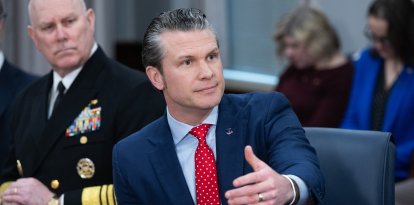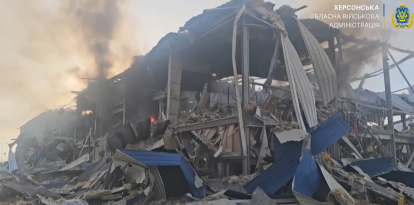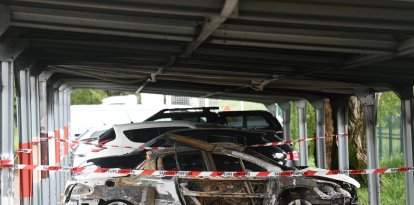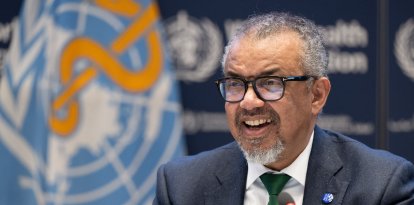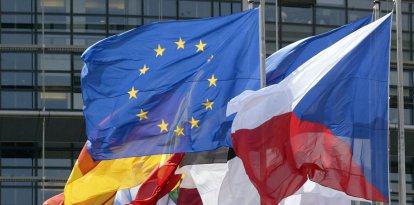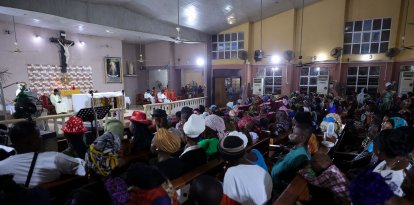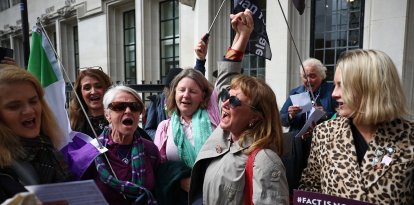NATO and the EU reject the idea of sending troops to Ukraine
France clarified the information that the Slovak prime minister leaked Monday though would not rule out the possibility, while its allies oppose the presence of Western soldiers within Ukrainian borders.
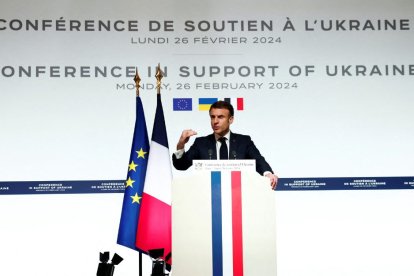
(
Controversy and misunderstanding loom in Europe after a meeting by heads of government called in Paris by Emmanuel Macron to address Western support for Ukraine. This Monday, Slovak Prime Minister Robert Fico leaked to the press that some members of NATO and the European Union allegedly intended to send soldiers to Ukraine.
The statements from the Slovak prime minister, who governs in coalition with a pro-Russian right, provoked a barrage of denials from several European governments, in addition to the NATO general secretary this Tuesday. The only government to not completely rule out sending troops to Ukraine was France, through its head of state and foreign affairs official, Stéphane Séjourné.
The French foreign minister, in the same line as his president, assured in statements reported by AFP this Tuesday that "the presence of Western troops in Ukraine would not cross any threshold of belligerence." Séjourné spoke of not ruling out any option in order to continue providing support to Ukraine with new formulas that serve to stop the Russian advance and dissuade Putin from continuing his offensive. "Some of these actions could require a presence on Ukrainian territory without crossing the threshold of belligerence," he added.
The French government cited some examples of non-war missions carried out by uniformed personnel, such as demining, security of neighboring countries such as Moldova, the fight against cyber attacks, support for Ukraine on its border with Belarus with non-military forces and joint manufacturing of weapons on Ukrainian soil.
The proposals from Emmanuel Macro's government and French Prime Minister Gabriel Attal went through the scrutiny of the National Assembly Tuesday, where the opposition regretted having caused an escalation of tension with the Russian government. At the center of these reproaches was France Insoumise, a far-left party, and Marine Le Pen's Rassemblement National. "He plays at being a war chief ... but he is talking about the lives of our children," said the conservative politician, who was criticized in response for her proximity to Russia prior to the war in Ukraine.
The EU and NATO ignore the French position
NATO Secretary General Jens Stoltenberg of Norway declared from the alliance's headquarters in Brussels that no member of the bloc would send troops to Ukraine. Stoltenberg was blunt in his stance. "There are no plans for NATO combat troops on the ground in Ukraine," the alliance's secretary general clarified. "NATO allies are providing unprecedented support to Ukraine. ... We have done it since 2014 and we intensified it after the invasion," he added.
Another European military power, Germany, denied the possibility or plan of sending armed forces to Ukraine, either for combat or in another type of mission or task. "There will be no soldiers on Ukrainian soil sent there by European countries or NATO countries," declared German Chancellor Olaf Scholz. The Spanish government was on the same page, as were Poland and Italy. The United Kingdom also clarified its position against the presence of its uniformed personnel in Ukraine.
The White House joined the wave of denials this Tuesday. National Security Council spokesperson Adrienne Watson said in a statement reported by AFP that "President Biden has made it clear that the U.S. will not send troops to fight in Ukraine."
'It is not in the interests of those countries at all'
The Kremlin added comment on the matter this Tuesday. The spokesman for the Russian government, Dimitri Peskov, assured that "it is not in the interests of those countries at all" during a press conference held in Moscow. However, he did not overlook these comments, which he described as "very important" in the context of the conflict. In the past, the Putin regime has already warned that the presence of Western contingents in Ukraine would mean entering into open war with Russia. The principle of mutual assured destruction, given the nuclear threat that Russia has as a deterrent, prevents this scenario.
Tension between Russia and Western countries has increased a step further in recent weeks due to the death of Russian opposition leader Alexei Navalny, in what many believe to be an assassination at the hands of Putin's government. As a result, several countries called their ambassadors in Moscow for consultations, in addition to summoning Russian diplomatic missions.
RECOMMENDATION
